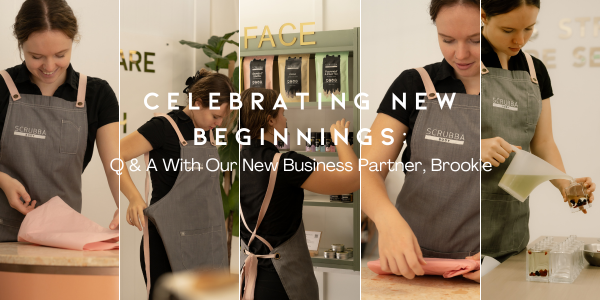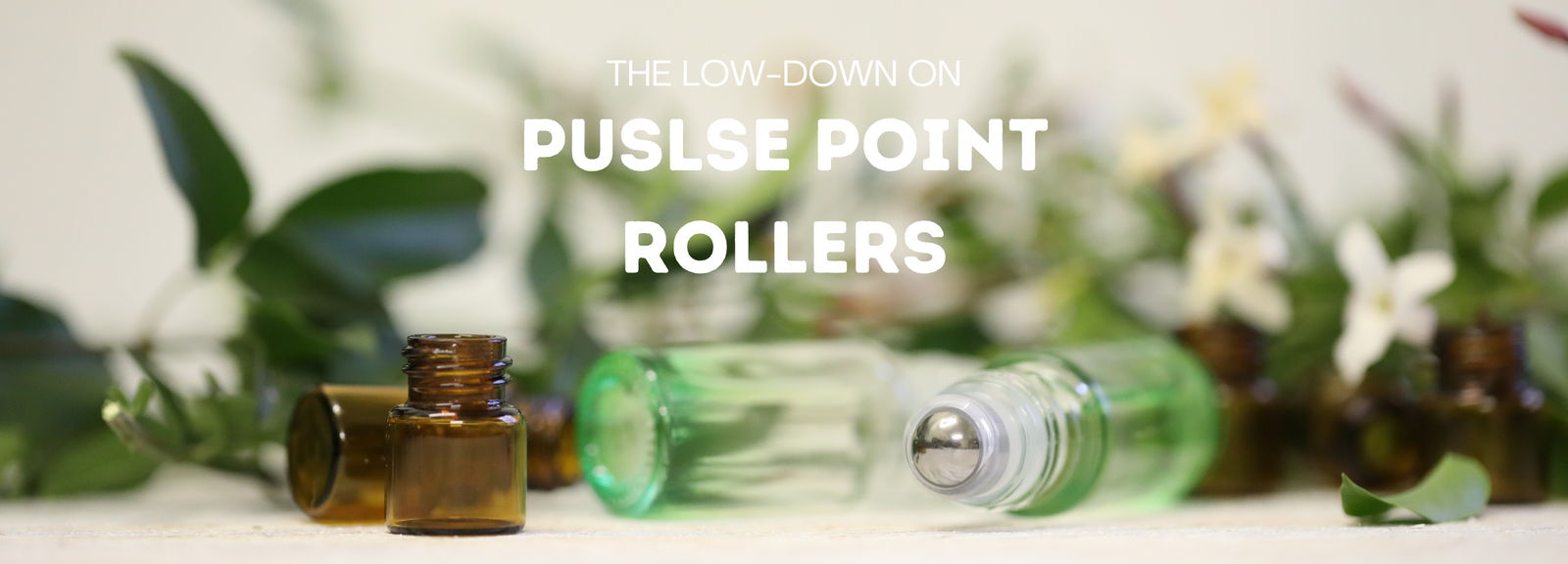Your Cart is Empty
Flat rate $8.95 shipping - Free on orders over $100.

In last weeks’ blog we talked about the amazing benefits of regularly practicing gratitude; Improved mental & physical health, self-esteem boosting, relationship building. So it’s no secret that we are all about that gratitude life now. But what’s the best way to practice gratitude? How do we do it? Is there an easy way?
There isn’t one, simple way of practicing gratitude that is going to work for everyone (well, we haven’t found it yet). But here are the ways that have been working for our team & hopefully you’ll find a few that suit you too.
This one is easy but you have to remember to do it. Consider something for which you are grateful. Anything, big or small. Think about being thankful for things like having a comfortable bed to wake up in, hot water for your morning shower, or a great cup of coffee to start your day. You might feel appreciative of your family, co-workers, friends, or the random stranger you just met today. Whatever it is, focus on getting there in your thoughts.
Take into account how you feel. Before continuing with the remainder of your day, pause for a moment to be with that emotion.
Try shifting your thoughts if you catch yourself thinking negatively or whining. Consider the positive aspects of the person or circumstance you are prone to criticising. This action has the power to drastically alter how you are feeling right now. And if you develop the habit of doing this, you help your brain develop a distinct neural pathway that is based on your strengths.
You might make a weekly list of things you’re grateful for on your social media platforms. I know some of these posts can seem a bit cringeworthy sometimes, so try & mix it up and be creative with your posts. “This week I managed to hit a new goal of getting to the gym every morning and I’m amazing at how good I’m feeling.” Try to maintain this for more than six weeks.

Another suggestion is to keep a gratitude journal. Set aside some time during the day, perhaps while you try to unwind before going to sleep or even in the bath. Consider your day and list the positive aspects. Perhaps your partner fixed a problem around the house, your favourite music came on the radio, or you witnessed a double rainbow. Consider writing about all of the awesome things you may have come to take for granted, such as having access to clean water or a particular skill you have.
We found this amazing Gratitude Journal App that we absolutely love!
We have started scheduling regular waiting times throughout the day for this task. Do you wait for your morning coffee at the same time every day? Get the same train or bus to work? Set a new prior trigger that prompts you to be appreciative. Consider a brief moment in your day that you could couple with a five-second exercise in appreciation. Then, deliberately associate appreciation with that trigger each day until it becomes as automatic as putting milk in your coffee.
Some example ‘waiting time prompts’ our team has started using are;
If you have trouble identifying a "prompt" in the above tip, an alarm might serve as a better, more pointed prompt to express gratitude.
Set it to go off when you know you'll either need or want to take a little break, and then take a moment to practise gratitude. You can make a list of your day's accomplishments so far or simply be grateful for the opportunity to close your eyes and think internally for a short while. Set your alarm for the next day after you take a deep breath and reset.

You can become more conscious of what you have and what it means to have it by volunteering or making a donation. By assisting individuals around you, you'll also be boosting your own morale.
According to a 2013 study, those who regularly volunteer are more likely to be upbeat and feel like they have more control over their life than people who don't.
If you’re already strapped for spare time in the week, consider asking your workplace if they allow time off for volunteering.
Go around the table the next time you're having dinner with your friends, your partner, or your kids and express what you're grateful for today. You'll be held accountable by others, and saying out loud how grateful you are can help it really sink in, making you feel more energised, alert, and content.
Thank your body for its endurance and your thoughts for persevering through the challenging times at the conclusion of each gym sesh. Write a gratitude note on your water bottle to help you remember it while you quench your thirst.
Are you appreciative of a friend's or family members? Tell them! Try expressing your gratitude in a letter or text, or pick up the phone and shoot someone a voice memo. Maybe even send them a nice little Gift Bundle... just because.
Their day will be made better by hearing your gratitude, and it will also help you forge new connections. According to a 2014 study, people who express gratitude to new acquaintances for their assistance are more likely to forge friendships with them.

For some extra tips & advice on the best ways to express gratitude, we recently listened to the ‘Attitude of Gratitude’ episode of the Happy Hour Podcast where they interviewed the king of gratitude Hugh Van Cuylenburg. Hugh explains it all so eloquently and makes it all sound so easy! We even recently added Hugh’s book ‘Finding Happiness Through Gratitude, Empathy & Mindfulness’ to our Audible list.
Comments will be approved before showing up.
The ‘Refresh, Revive, Recharge’ mindset isn’t just a one-off treat — it’s a lifestyle. By building small, thoughtful self-care rituals into your daily routine, you can enjoy a more balanced, energised, and joyful life. Whether it’s a quick scrub in the shower to refresh, a dab of essential oil to revive, or a cooling mist to help you recharge, these little moments add up to big changes.
At Scrubba Body, we’re here to help you craft those moments. Browse our range of body scrubs, essential oil rollers, candles, and more to create your ultimate self-care sanctuary. Your journey to refresh, revive, and recharge starts today!


Essential oil pulse point rollers have become increasingly popular in recent years as more people seek natural ways to manage stress, anxiety, and other health concerns. These rollers are a convenient and easy way to enjoy the benefits of essential oils, and they can be used at any time and any place.
In this blog post, we will explore the benefits of essential oil pulse point rollers and how they can help to improve your health and well-being.